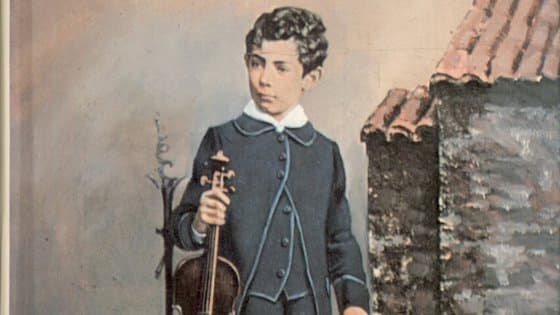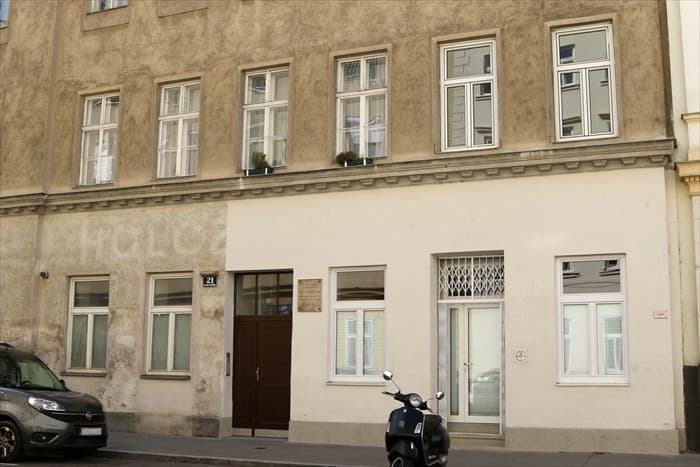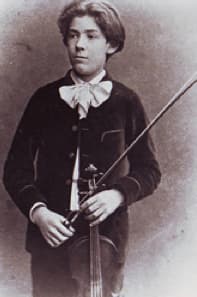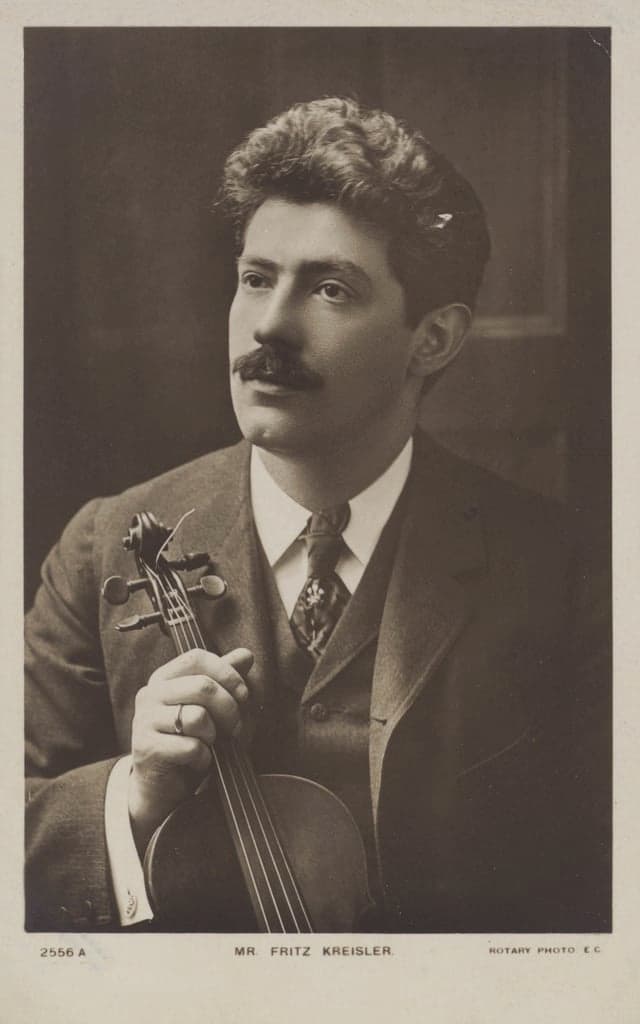Almost every biography of Fritz Kreisler quotes his famous saying, “I knew musical scores instinctively before I knew my A B C. It was a gift of Providence. I did not acquire it.” I have always wondered how this statement came about, and I am happy that Kreisler explained it to a friend later in life.
How Kreisler Learnt to Read Music

The young Fritz Kreisler
“One day,” he writes, “when I was three and a half years old, I was standing next to my father as he played a Mozart string quartet with his friends. It started out with the notes D B G. I asked him, how do you know you must play these three notes? My father took a sheet of paper, drew the five lines of a musical staff, and explained what each note meant when written between or on given lines. He also showed how a note was raised or lowered by a halftone, and how fractional notes are indicated. I understood at once what he was trying to teach me. And so it came about that I literally could read music before I learned my A B C.” Fritz Kreisler was born on 2 February 1875 in Vienna, and he did doubtlessly inherit his musical talents, stubborn determination, and boundless enthusiasm from his father, Dr. Samuel Severin Kreisler.
J.S. Bach: Concerto for 2 Violins in D Minor, BWV 1043 (Fritz Kreisler, violin; Efrem Zimbalist Sr., violin; Howard Rattay, violin; Pasquale Bianculli, violin; John Fruncillo, viola; Rosario Bourdon, cello; Walter B. Rogers, cond.)
Influence of His Father

Fritz Kreisler’s house in Vienna
Kreisler’s father had begged his father to allow him to enter the musical profession. However, his wish was denied and he turned to the medical profession instead. As soon as he had established himself as a general practitioner, he formed a string quartet, and at one time the quartet consisted, “besides my father, of the local chief of police, a druggist, and the head of the fire department.” As Kreisler later related, “They were amateurs in the real sense of the word—lovers of music who expected no material reward for their work, and enjoyed it more than anyone possibly can.” Kreisler reflected that his father did not have any unusual aptitude for music, “but his courage and persistence were truly admirable…That I became a professional musician may be due to the fact that he projected, perhaps unconsciously, his own unfulfilled wish onto me.” According to his recollections, young Kreisler built himself a violin out of a cigar box over which he stretched shoestrings, and he played along with his father’s quartet in his room.
Fritz Kreisler: Liebesfreud (take 2) (Fritz Kreisler, violin; George Falkenstein, piano)
First Violin Lesson With Jacques Auber

When Fritz was about four years of age, one of the quartet players suggested that he should have a real violin, and presented the beaming boy with a miniature fiddle. “It was a toy violin,” Kreisler recalled, “but it did produce sounds. From that time, I insisted upon taking my place with the others and played my tiny instrument. One evening, as we were playing the national anthem, the others stopped quite suddenly, but I, engrossed in my performance, never noticed it and continued in perfect tune and time, to the end.” It was immediately apparent that Fritz had enormous talent, and the very next day, his father bought him a real violin. It was decided that he would take first lessons with Jacques Auber, the concertmaster at the Ring Theater. Fritz made extraordinary progress, and in 1882 he was admitted to the hallowed halls of the Vienna conservatory at the age of seven. His admittance was no fluke, as admission at that time depended upon a rather severe examination. The mere fact that Kreisler was accepted, clearly indicates that he had been pretty far advanced in his studies.
Fritz Kreisler: La Precieuse in the style of Couperin (Fritz Kreisler, violin; Haddon Squire, piano)
Music Education at the Vienna Conservatory

With his admission to the Vienna Conservatory, Kreisler’s boyhood seemingly came to an end. He remembered, “I could not engage in sports like tennis, nor soccer, nor even bicycling, as I was not to endanger my fingers.” His violin teacher was the assistant conductor and concertmaster of the court orchestra, Joseph Hellmesberger, Kreisler remembered him “as a happy man with a weakness for ballet dancers. He was an excellent teacher, and when I was eight years old, I presented him with my first effort in composition—a string quartet.” Alongside his study of the violin, Kreisler took courses in harmony and the theory of music with Anton Bruckner. Bruckner made an immediate impression on the young Kreisler, who considered him “a combination of genius and simpleton. He had two coordinates, music and religion. Beyond that, he knew almost nothing, and I doubt whether he could multiply or subtract correctly.” Kreisler continued, “Religion was very real with him. If the nearby bells tolled, he would either fall on his knees in the midst of a class lesson and pray, or, more often, would leave us and rush over to the church for his devotions.” Away from conservatory life, Kreisler was deeply impressed by Dr. Sigmund Freud, who regularly played chess with his father. Another frequent guest at the house was Professor Theodor Billroth, one of the great physicians of his time, and later in the nineties, Johannes Brahms himself. While Kreisler’s genius was surely genetic, it was carefully nurtured in an environment that allowed it to blossom.
For more of the best in classical music, sign up to our E-Newsletter
Fritz Kreisler: Caprice Viennois

I have a picture of Fritz on my office wall.
I have a signed picture and a signed copy of his book.my grandfather was a friend and fellow violinist. he attended the 75th birthday in New York. certainly one of the greats of his era. not a player like Heifitz but wrote many pieces that are still being played.